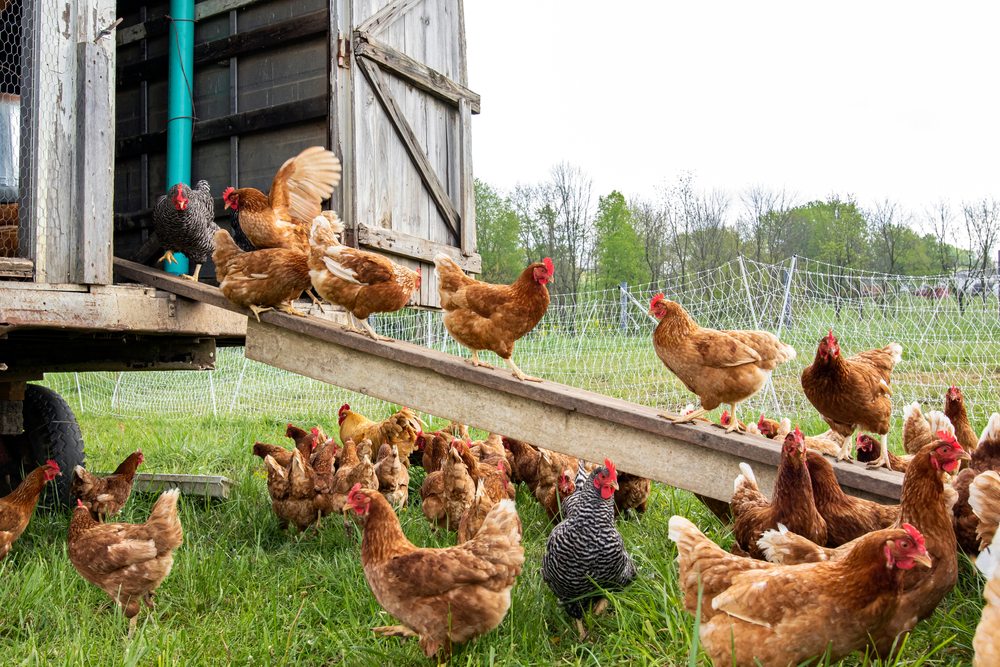
Are you ready to commit to raising chickens in your very own backyard? Well, then what are you waiting for? Continue reading to know all about taking care of these wonderful birds. Once you bring them home, you will not be able to stop smiling and loving them more and more each day.
Reasons Why You Should Raise Chickens
Are you wondering what kind of benefits you can reap once you start to raise chickens at home? There is more than one! First of all, having chickens in your very own backyard will allow you to eat fresh and tasty eggs each morning. It is a proven fact that any eggs you buy at the store will pale in comparison to the fresh ones that your chickens lay.

In addition, chicken poop, as well as the shells of the eggs, can be sent right into compost, allowing you to recycle responsibly. If that is not enough, these birds do not require too much attention. They know how to keep themselves entertained as they pick at the worms, beetles, and grass around them. It all helps them make the delicious eggs that you consume for breakfast. Furthermore, they have a keen eye when it comes to pests and insects. Thus, they are excellent companions for gardening!
However, there is an entire process for you to follow before you can bring chickens into your home.
Things to Remember Before Purchasing Chickens
Here are some things to keep in mind after you have decided to commit to raising chickens.
1. The first thing you need to do is figure out whether or not your town or city permits people to raise and keep chickens in their homes. Similarly, you need to check whether you can do that in your neighborhood as well. Be sure to also find out the limit of chickens you are allowed to keep. All of this is especially important so that you do not end up wasting your money and time on the prospect of chickens, only to find out that it is not allowed.
2. Next, check if your backyard has the space required to build a comfortable and sizable chicken coop or hen house. Remember, you need ample space to hold water containers, a feeder, a nest box, one of which can facilitate only three hens, as well as a roosting area. Moreover, it should be spacious enough to allow you to stand inside while you gather eggs and clean the manure with ease. In addition, the housing for your chickens should be strong and sturdy so that they are not at risk from any predators.

3. It is a known fact that chickens lay eggs throughout the summer and spring seasons and even in the fall. The condition is that they should have at least 12 hours of daylight, to a maximum of 14 hours. It would be best if you made time to be able to collect eggs on a daily basis, and sometimes even twice in one day.
4. Should you go on a vacation after you have brought home chickens, you will need to hire a reliable and professional chicken-sitter.
Frequently Asked Questions Related to Keeping Chickens
Below are a couple of questions to help you through the process of purchasing and taking care of your chickens.
1. What is the number of chickens sufficient for me?
Chickens are very friendly creatures by nature, and thus, it is advised that you keep at least three birds to a maximum of six birds in your first go. This will ensure that you have a consistent and healthy supply of the eggs that they lay, as an adult chicken usually takes three days to lay two eggs on average.

Research has revealed that hens are usually productive right after birth for up to two years. Soon after, their production slows down, and you have to think about making replacements in your flock. If you own a rooster, you can hatch some chickens of your own or buy them from a local supplier.
2. What is the right amount of space to be given to chickens?
The answer to this question is dependent on the type of chicken you decide to raise. Some experts believe that a single chicken, which is medium in size, requires a minimum of 3 sq. ft of total floor space of the chicken coop, as well as 8 to 10 feet outside it. The more spacious your backyard and chicken coop are, the healthier and happier your chickens are bound to be. Remember, an overcrowded space will only lead to feather picking and disease.
Furthermore, your birds will require space to spread their wings freely. This means that you may have to give them your entire backyard or a sizeable hen run. Make sure to space the fence properly to keep the predators outside and your chickens inside. This means you need to buy some chicken wire for fencing beforehand mandatorily.
3. What kind of nutrition plan do chickens need?
To get your chickens started off, you will need a complete pack of grower feed, especially if you are trying to get them to lay eggs right away. The layer feed needs to continue all through week number 18 until each one of them lays their very first eggs.
If you decide to bring home baby chicks, you need to start them strongly to allow them to grow. They require no less than 38 different nutrients from the very first day. For this, you will need to go to your local store and ask a professional to suggest effective starter-grower produce.
Be sure to keep an eye on the number of days each chick takes to lay eggs. If a chicken is taking longer than usual, then do not get worried. Visit your local store and purchase a feed that has exactly 18% protein. However, if you are raising mixed flocks or meat birds, then you need to pick out a complete feed that consists of 20% protein.
Meanwhile, older chicks need to be transitioned to a feed with greater calcium once they hit 18 or 20 weeks and lay their very first eggs.

4. How to disinfect the environment to keep your chickens safe?
Before you can bring your chickens into their new home and even as they grow with you, you need to ensure that their environment is kept clean. Remember, young chicks do not have a very strong immune system and are at risk of various diseases. Thus, you need to disinfect all the relevant materials before you can use them or thoroughly clean them on a weekly basis.
The right disinfectants can be bought from your local store, or you can use your household cleaners as well. However, do not forget to read all the directions given behind the latter to make sure that they are safe for use around animals and will not leave behind any film. The ideal mixture suggested for the disinfectant is 90% water and 10% bleach, which works well if you rinse your cleaner after using it.
Now that you have a basic overview of how to raise chickens in your backyard, you can get your very own flock. It can not only be a satisfying experience for you but your whole family as well. However, you must remember that your chickens are living things. Thus, you are responsible to handle them with care and keep them safe from all external and internal threats.
Conclusion:
I have found that raising backyard chickens can be very rewarding. You’ll find yourself with little pets who give you back so much in return for your investment of time, money, and love. One thing I do want to state is that raising chickens doesn’t need to be any more complicated than this article has made it out to be. There is no need to make it more complicated than this. Just remember, all chickens are different. Some will be more demanding than others for time and attention. Enjoy!






